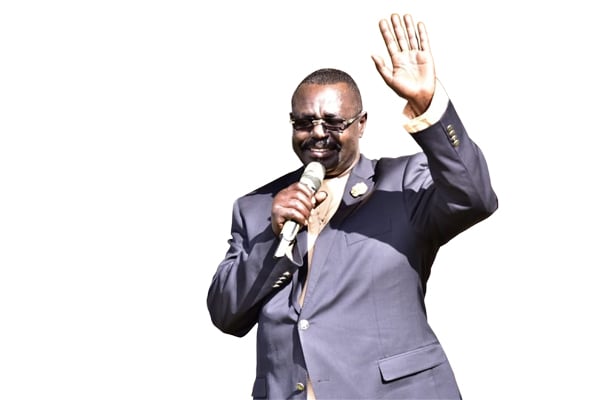Prime
Politics of eulogy

Author: Phillip Matogo. PHOTO/FILE
What you need to know:
- While eulogies can bring the nation together during times of loss, they can also undermine the country’s unity when the politics of a given nation is characterised by regional loyalties.
In the aftermath of the death of former Speaker Jacob Oulanyah, eulogies poured in to mourn a man who now towers in death.
Eulogy is a key rhetorical tool for the public to come to terms with national tragedies, such as the death of a national leader.
While eulogies can bring the nation together during times of loss, they can also undermine the country’s unity when the politics of a given nation is characterised by regional loyalties.
Maybe that’s why we saw ethnic tensions rising as the question of how to treat Oulanyah while he ailed and how to bury him when he was dead arose.
True, Oulanyah’s death did not cause these tensions. The cause of these can be traced to how Uganda was born with colonialism being our nation’s original sin.
However, as government tried to resist the irresistible equalising power of death by throwing every penny at treating and burying Oulanyah, it reminded us of how Uganda is increasingly being defined by its inequalities and iniquities.
No amount of eulogising will solve that.
Besides, eulogy is fast becoming a cultural performance. As such, it is no longer a means to remember the dead but is instead a tool used in consoling the living who suffer from the pain of losing someone important in their lives.
That’s why eulogies are important political tools, which officially fall under the category of epideictic (or ceremonial) speeches.
This politics of the eulogy reminds me of the death of a colleague a few years ago.
It was sad not because I’ll miss him; I never got along with him when he was alive and never visited him while he was ill.
So, I won’t embroider these words with the hypocritical love that we offer to those who die and withhold from those who are living.
Or as the poet Voltaire eulogised somebody: “He was a great patriot, a humanitarian, a loyal friend; provided, of course, he really is dead.”
It’s alright if you missed the irony in the great poet’s words; I won’t hold that against you.
I think my dead colleague must have had some endearing qualities, to those who loved him. But from where I am seated, he was pretty much alone before he passed on.
This happens to too many of those we claim to love.
A friend of mine once told me why he’s so cynical. He says when his father died, an uncle of his cried like a jilted lover slicing up onions.
My friend was touched by his uncle’s crocodilian outpouring. Then, he heard it from his late father’s former boss that that very uncle had badgered him to sack his ailing father so he (the uncle) could take his job. Since, he said, “The man is already as good as dead.”
Apart from his uncle acting callously, his behaviour destroyed the flower of my friend’s naiveté as the cynic took seed within him.
I am not a cynic. But I am cynical enough to know that eulogies are largely self-serving tools of conformism that have nothing to do with one’s conscience. And even less to do with the dead.
Truly, the best eulogy is the love you give me when I am alive. All the rest is for you and the afterthoughts that defined what I meant to you, when I am gone.
So Oulanyah’s passing is bittersweet to me as it reminds me that the ones I love will also die. And I am powerless to stop that.
However, I am not powerless to love them before that happens.
Mr Matogo is a professional copywriter




